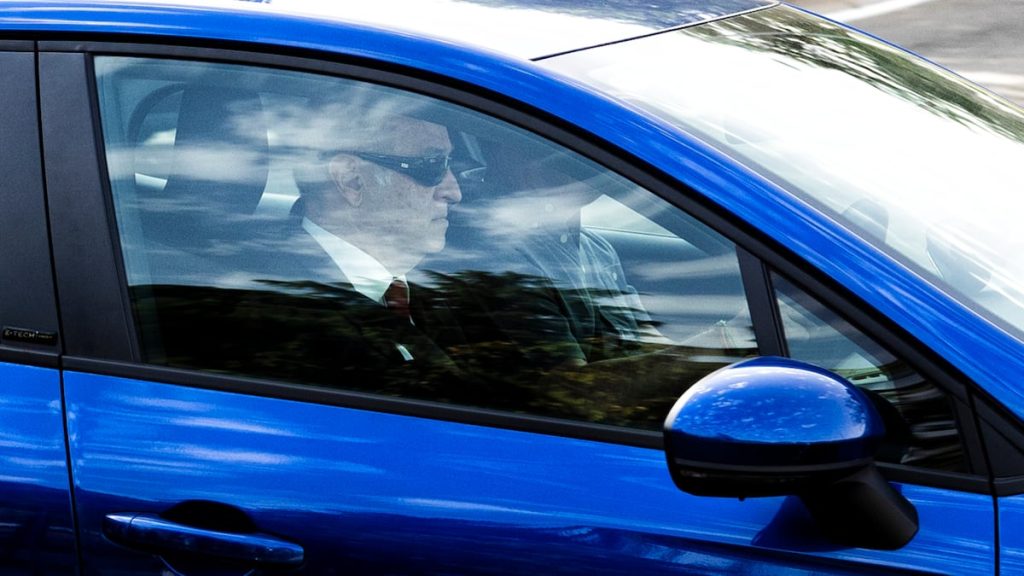Pedro Sánchez has expanded his offensive against Judge Juan Carlos Peinado. The State Attorney General, on behalf of the President of the Government, filed a document before the Civil and Criminal Division of the Madrid High Court requesting the extension of the lawsuit for judicial malpractice filed at the end of July against the judge investigating Begoña Gómez, Sánchez’s wife, for alleged crimes of influence peddling and business corruption. The State Attorney argues that Peinado practices “intrinsic injustice” and “contravenes existing doctrine,” resulting in “a violation of the duty that corresponds to the judge in the exercise of his powers,” according to a document obtained by EL PAÍS. The Government’s response comes after the judge suggested that “conclusions” can be drawn from the President’s “silence” when he invoked his right not to testify as a witness in the case against his wife, as established by the Criminal Procedure Law. The judge also ordered a copy of the recording to be handed over to the parties involved, despite the Prosecutor’s opinion that the investigation lacks evidence and is speculative, as well as the potential for improper dissemination of the recording.
In light of the recent developments, including the judge’s actions, the State Attorney’s Office argues in its latest document that the main objective of these actions related to the Presidency of the Government is to give it publicity incompatible with the regulation of questioning witnesses in this case. The State Attorney accuses Peinado of making forced and artificial interpretations of legal provisions or procedural principles, even suggesting that he has converted a procedural right of certain witnesses into baseless inferences with procedural effects, in violation of the institution of testimonial dispensation. Peinado had visited La Moncloa a month ago intending to interrogate the President in the case against Gómez, which began in April with a complaint from Manos Limpias based on falsified news articles. The Prosecutor and the defense of the accused unsuccessfully appealed the interrogation, which the judge wanted to record and lasted only a few minutes. On the same day, Sánchez decided to file a lawsuit through the State Attorney in defense of the Presidency’s institution, claiming the judge had issued an unjust and knowingly unfair order by summoning him. The law allows written declarations for Government members summoned as witnesses due to their official responsibilities.
The judge argued that he wanted to ask Sánchez about issues unrelated to his position but regarding his role as Gómez’s husband. The Criminal Procedure Law also exempts husbands and direct relatives of accused individuals from testifying against their spouses to protect defense rights. The State Attorney General proposed that recording could be replaced with a written record by the Court Clerk, indicating that the witness, in this case, the President, chose not to testify as the spouse of the accused, without providing visual or audio content to the parties. The State Attorney warns of ongoing leaks in the case and criticizes the judge for not taking action to prevent improper dissemination of the recording. The State Attorney’s assessment is that the judge’s decisions aim to publicize the investigation rather than effective legal proceedings, reinforcing the Government’s lawsuit’s main argument.
The Madrid Provincial Court will decide on September 30 whether to prevent Judge Peinado from continuing the investigation into the Begoña Gómez case, as requested by the President’s wife’s attorney, Antonio Camacho, and the Madrid Prosecutor’s Office. The details of the investigation are unclear, but Peinado’s resolutions indicate an inquiry into Gómez’s connections with the Complutense University of Madrid, where she co-directed a chair, her relationship with the businessman Juan Carlos Barrabés, who taught the master’s program Gómez managed, and her links to Javier Hidalgo, former CEO of Globalia, the parent company of Air Europa, which was rescued by the Government during the pandemic, a practice common in other EU countries.


